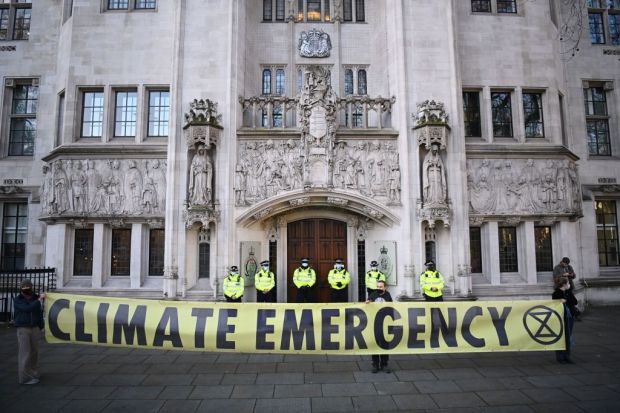Say it quietly, especially when there’s a Green listening: but there’s one certainty about Net Zero 2050. It won’t happen. As any honest MP will admit in private, it is stymied not only by the need to keep the lights on following the Ukraine energy shortage, but also for another reason: because no democratic majority will tolerate the cutbacks in their quality of life necessary to maintain the headlong dash to carbon neutrality in 27 years’ time.
Unfortunately there is also another certainty about Net Zero. While it remains official policy, however quixotic, corporate capital is being handed a heaven-sent opportunity at the expense of you, me and the country we live in. If you don’t believe this, ask anyone who lives in rural East Anglia, between Newmarket and Soham.
The worries of residents, who don’t fancy living in an energy factory, count for little
Three years ago, a company called Sunnica proposed taking some 2,500 acres – four square miles – of good agricultural land in the area out of production and submerging much of it in photovoltaic plastic. Few people liked the plan. Several farmers refused to participate. And the three local authorities concerned with planning and the environment in the area, West Suffolk, East Cambridgeshire and Suffolk County, were viscerally opposed.
So was that the end of the scheme? Certainly not. In this era of Net Zero, any solar scheme over 50 MW counts as a National Significant Infrastructure Project, or NSIP. This means the final decision is made, not by local people, but those in Whitehall. The worries of residents, who don’t fancy living in an energy factory, count for little. The same goes for farmers who prefer the idea of potatoes under their land to solar panels above it.
In Newmarket, the local Tory MP, Lucy Frazer, is understandably up in arms. Rishi Sunak himself has said that on his watch ‘we will not lose swathes of our best farmland to solar farms.’ We will see.
Such cases matter, since they are not isolated events. Sunnica is by no means the only organisation seeking to get the green light for plonking its profitable panels on to farm land. There is a similar scheme at Longfield near Chelmsford, in Essex, and yet another at Mallard Pass near Stamford in Lincolnshire. Both schemes are opposed by locals. So why the push to put panels on farm land? To the argument that brownfield sites would work just as well, the response put forward is usually the same: that land is too dear, and the scheme might struggle to break even unless developers are empowered forcibly to buy up virgin fields at agricultural prices.
All this should worry anyone, wherever they live. For one thing, food security is a problem in an overcrowded country, as is the lack of open non-industrial space: sacrificing both these things for the sake of ticking a box on some official green audit is first-rate folly.
For another, all this looks like a misuse of the NSIP regime. Fast-track central planning is all very well for government-initiated projects such as major roads or railways, or large single installations concerned with things like water or energy. It is far more questionable to use it when private companies are seeking to implement widespread land-use change over large areas of countryside which they happen to fancy.
Indeed, it’s worth taking a closer look at some of the companies involved. Sunnica, the organisation trying to muscle in on rural Suffolk, is a British company, but its structure is rather complex. It is actually a joint venture involving two established solar developers, Tribus Energy and PS Renewables. The latter of these is, according to the firm itself, the ‘customer facing name for Padero Solaer’ – a joint venture between a Spanish and British company. Solaer, the Spanish part of this enterprise, is a sub-subsidiary of Swedish investment vehicle EQT AB.
Should such firms be given priority over the views of locals? Clearly not. Yet if the scheme is given the green light, it will show what really matters in this debate: the race to Net Zero.
It is hard not to conclude that there is something wrong with the government’s worthy if foolish policy of carbon neutrality by 2050. At least as regards solar power, it is not working for the benefit of the people who live here – and certainly not for those who look after our land – but instead seems to favour a more international clientele.
What do we need to do? That the whole Net Zero idea needs urgent rethinking – and green activists need facing – is obvious. Meanwhile, however, the government must take steps to limit the use of the NSIP regime to genuinely home-grown projects. Not for the first time, the government seems to have allowed itself to be taken for a ride for fear of upsetting the green lobby. It is high time we stopped this process.
Got something to add? Join the discussion and comment below.
Get 10 issues for just $10
Subscribe to The Spectator Australia today for the next 10 magazine issues, plus full online access, for just $10.




















Comments
Don't miss out
Join the conversation with other Spectator Australia readers. Subscribe to leave a comment.
SUBSCRIBEAlready a subscriber? Log in